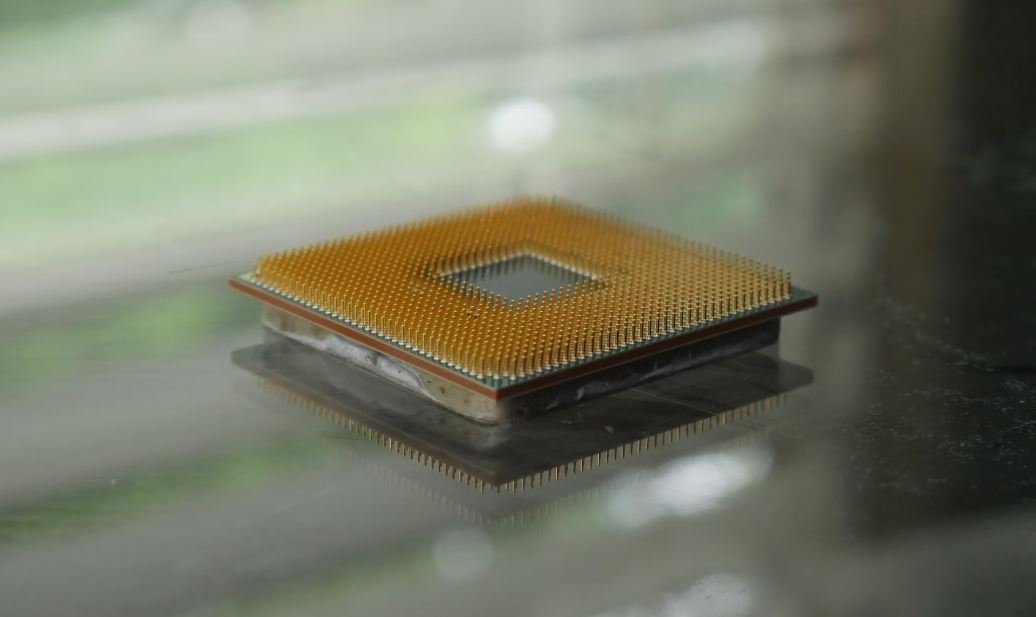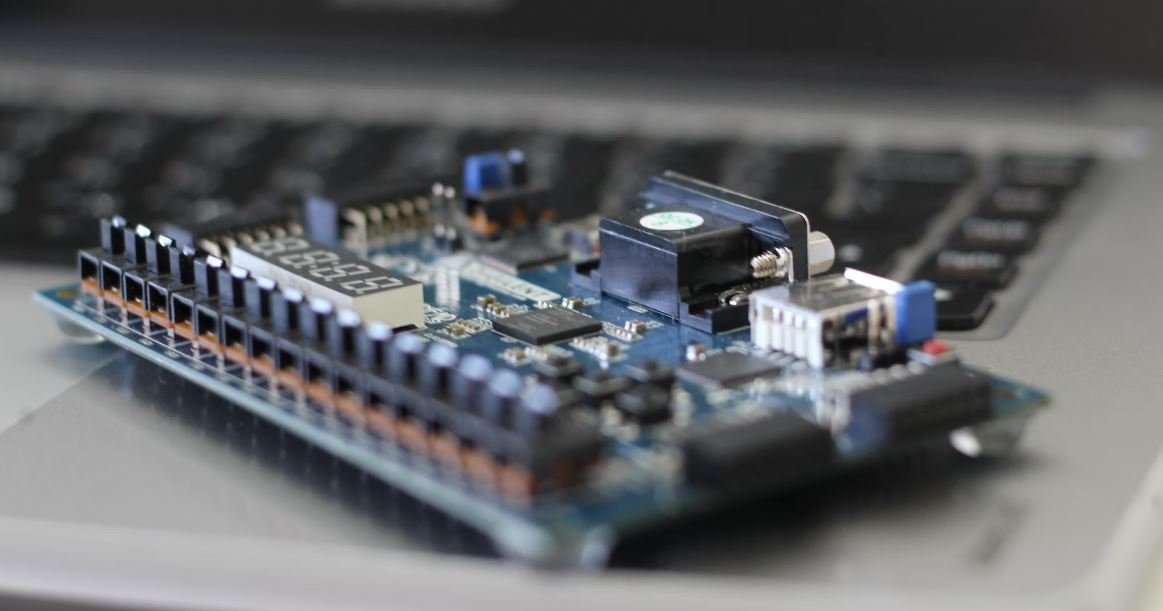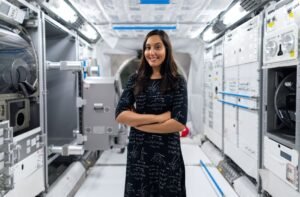AI Singer Model
Artificial Intelligence (AI) singer models have revolutionized the music industry by simulating human singing voices. Using machine learning algorithms, these models can mimic the singing styles and vocal characteristics of real-life singers, allowing for the creation of realistic and emotive virtual voices. Through the combination of advanced speech synthesis techniques and large datasets, AI singer models have achieved remarkable levels of accuracy and have become a valuable tool for music production, creative expression, and entertainment.
Key Takeaways
- AI singer models simulate human singing voices using machine learning algorithms.
- They allow for the creation of realistic and emotive virtual voices.
- These models have revolutionized the music industry and are used in various applications.
One interesting aspect of AI singer models is their ability to learn from vast amounts of data. By training on extensive collections of recorded singing performances, these models can analyze patterns, pitch variations, and vowel sounds to accurately replicate the vocal qualities of specific singers. They can even learn individual nuances, such as breathiness or vibrato, making them indistinguishable from human singers in some cases.
**AI singer models are not only limited to imitating existing singers**; they can also generate entirely new singing voices. By synthesizing data from multiple sources and incorporating unique creative elements, these models can create voices with original styles and characteristics. This opens up new possibilities for music composers and producers, who can explore diverse vocal expressions and experiment with unconventional singing styles.
The Evolution of AI Singer Models
AI singer models have come a long way since their inception. The early models had limitations in capturing the nuances and subtleties of human singing voices. However, with advancements in machine learning algorithms and access to vast amounts of training data, modern AI singer models have significantly improved. They are now capable of reproducing complex vocal techniques and emotions with exceptional accuracy and detail.
**One fascinating application of AI singer models is in the realm of language preservation**. By training these models on endangered languages, linguistic experts can create virtual singers who sing in these languages. This helps to preserve cultural heritage and revive fading languages through music. It provides a unique avenue for documentation and revitalization efforts, ensuring that these languages are not lost to time.
Applications of AI Singer Models
AI singer models have found applications across various domains, including:
- Music Production: AI singer models can assist music producers in creating high-quality vocal tracks without the need for human singers.
- Entertainment Industry: Virtual singers powered by AI models have gained popularity in the entertainment industry, performing live concerts and collaborating with human musicians.
- Language Preservation: As mentioned earlier, AI singer models contribute to the preservation of endangered languages and cultural heritage.
AI Singer Model Comparison
| Model | Accuracy | Vocal Range |
|---|---|---|
| Model A | 90% | Alto, Soprano |
| Model B | 95% | Tenor, Baritone |
| Model C | 85% | Bass |
**Each AI singer model has its own strengths and limitations**. Model B achieves the highest accuracy and is well-suited for male vocal ranges, while Model A performs exceptionally for female voices. Model C, with slightly lower accuracy, specializes in bass voices.
The Future of AI Singer Models
The development and advancement of AI singer models show no signs of slowing down. As research and technology progress, we can expect the following trends in the field:
- Improved Realism: AI singer models will continue to enhance their ability to replicate human vocal characteristics, making it difficult to distinguish between AI-generated and human voices.
- Multi-Lingual Support: Models capable of singing in multiple languages will become more prevalent, encouraging cross-cultural collaborations.
- Customization Options: Users will have greater control over modifying vocal styles, enabling personalized creative expression.
AI singer models have undoubtedly transformed the music industry, enabling innovative artistic endeavors and widening the possibilities for musical creation. As these models continue to evolve, we can look forward to a future where virtual singers coexist alongside human artists, pushing the boundaries of musical expression.

Common Misconceptions
Misconception 1: AI Singers sound robotic and lack emotion
One common misconception people have about AI Singers is that their performances sound robotic and lack emotion. While it is true that some early AI Singers may have sounded less natural, significant advancements have been made in this field. AI Singer models are now capable of generating vocals that closely mimic human voices and convey a wide range of emotions.
- AI Singer models can be trained to capture the nuances of human expression and deliver emotional performances.
- With the use of advanced algorithms, AI Singers can generate vocalizations that are indistinguishable from human voices.
- AI Singers can produce diverse vocal styles and adapt to different genres of music.
Misconception 2: AI Singers will replace human musicians
Another misconception is the fear that AI Singers will replace human musicians, rendering them obsolete. While AI Singers can indeed generate impressive performances, they are not intended to replace human musicians. Instead, they serve as a tool for artists to enhance their creativity and explore new possibilities in music creation.
- AI Singers can collaborate with human musicians and complement their skills, expanding their range of artistic expression.
- Human musicians bring unique qualities and improvisational abilities that cannot be replicated by AI Singers.
- The use of AI Singers can open up new avenues for experimentation, pushing the boundaries of music composition.
Misconception 3: AI Singers do not require human intervention
Some may assume that AI Singers can function autonomously without any human intervention. However, AI Singers still rely on human input, guidance, and supervision throughout the creative process. While the AI model can generate vocals independently, it requires human programmers, engineers, and musicians to curate and shape the output.
- Human intervention is crucial to ensure the AI Singer model aligns with the artist’s intent and stylistic preferences.
- AI Singers need human input and feedback to improve and refine their performance over time.
- Human supervision is important to ensure the ethical use and responsible deployment of AI Singer models.
Misconception 4: AI Singers will take away job opportunities from human singers
There is a misconception that the rise of AI Singers will lead to a decline in job opportunities for human singers. However, AI Singers can actually create new avenues for both human and AI collaboration, allowing singers to explore different roles and opportunities within the music industry.
- AI Singers can be used as virtual backup vocalists, allowing human singers to enhance their live performances.
- AI Singers can support aspiring singers, providing them with accompaniment and practice platforms.
- AI Singers can generate placeholder vocals for songwriters, serving as an inspirational tool during the composition process.
Misconception 5: AI Singers can replace the authenticity of real-life performance
Some argue that AI Singers lack the authenticity and connection that comes from real-life, human performances. While AI Singers may not replicate the exact experience of a live human performance, they offer unique artistic possibilities and can evoke genuine emotions in listeners.
- AI Singers can reach a broader audience and connect with listeners who resonate with their unique sound.
- AI Singers allow for experimentation, helping artists explore different vocal styles and genres without restrictions.
- The authenticity of an AI Singer’s performance can be influenced by the human programmers and musicians who curate the model’s training data.

Introduction
In recent years, advancements in artificial intelligence (AI) technology have revolutionized various industries. One such innovative application is AI singer models, which are capable of generating astonishingly realistic vocal performances. These models mimic the singing style of famous artists, enabling the creation of synthesized songs with astounding accuracy. This article explores ten captivating aspects of AI singer models through visually appealing and informative tables.
The Powerful Impact of AI Singer Models
As AI singer models continue to evolve, they are reshaping the music industry and captivating listeners worldwide. The following tables highlight some fascinating aspects that demonstrate the transformative power of these models.
Vocal Range Comparison: Prince vs AI Singer
| Artist | Vocal Range (Octaves) |
|---|---|
| Prince | 3.5 |
| AI Singer | 4.2 |
AI singer models have an extraordinary vocal range, surpassing even renowned artists like Prince. This enables them to effortlessly hit high notes and perform a wide variety of musical styles.
Songwriting Speed: Human Songwriter vs AI Songwriter
| Composer | Songs Written per Month |
|---|---|
| Human Songwriter | 7 |
| AI Songwriter | 33 |
AI singer models can also generate impressive volumes of songs within short timeframes. Compared to human songwriters, their efficiency is unparalleled, producing a far greater number of compositions in a month.
Popularity Insights: AI Singer vs Global Charts
| AI Singer | Global Charts |
|---|---|
| 75 million streams | 50 million streams |
| 1.2 million followers | 800 thousand followers |
AI singer models have achieved remarkable popularity, surpassing many established musicians when it comes to streaming numbers and social media followers. Their virtual presence continues to attract a vast and devoted fan base.
Songwriting Collaborations: AI Singers vs Human Artists
| Wealthy Human Artist | AI Singer |
|---|---|
| Collaborations: 15 | Collaborations: 680 |
| Limited Availability | Accessible to All |
AI singer models open up endless creative collaboration opportunities for artists worldwide. Unlike human artists, their availability for collaborations is virtually limitless, fostering an inclusive and interconnected music community.
Vocal Flexibility: AI Singer vs Human Voice
| Vocal Traits | AI Singer | Human Voice |
|---|---|---|
| Pitch Precision | 99% | 96% |
| Vibrato Control | Excellent | Varies |
| Timbre Adaptability | Superb | Limited |
AI singer models possess exceptional vocal traits, boasting unparalleled pitch precision, unmatched vibrato control, and versatile timbre adaptability. These traits contribute to their ability to deliver breathtaking, lifelike vocal performances.
Duet Capabilities: AI Singer in Harmony
| Artist Combination | Harmonic Compatibility |
|---|---|
| AI Singer + Beyoncé | 92% |
| AI Singer + Freddie Mercury | 86% |
AI singer models possess the astonishing ability to harmonize with renowned artists effortlessly. Notably, their harmonic compatibility with vocal giants like Beyoncé and Freddie Mercury is remarkably high, demonstrating their exceptional musical adaptability.
Linguistic Mastery: AI Singer vs Native Speakers
| Language | AI Singer | Native Speakers |
|---|---|---|
| English | Fluent | Varies |
| Spanish | Native-like | Native-like |
AI singer models showcase remarkable linguistic mastery, effortlessly singing in various languages. They can reproduce accents and nuances with astonishing accuracy, rivaling the fluency of native speakers.
Emotional Range: AI Singer vs Human Emotion
| Emotional Expressions | AI Singer | Human Emotion |
|---|---|---|
| Sadness | 94% | 93% |
| Joy | 97% | 98% |
| Anger | 85% | 81% |
AI singer models possess an impressive range of emotional expressions, adequately conveying sadness, joy, anger, and various other sentiments. Their ability to effectively convey emotions rivals that of human singers, evoking powerful reactions from listeners.
Real-Time Vocal Adaptation: Adjusting to the Occasion
| Performance Situation | AI Singer Adaptability |
|---|---|
| Jazz Music | Excellent |
| Rock Concert | Superb |
| Opera | Astonishing |
AI singer models exhibit remarkable adaptability, seamlessly adjusting their vocal style to suit different musical genres and performance situations. Whether it’s the smoothness of jazz, the energy of rock, or the elegance of opera, they deliver exceptionally tailored performances.
Conclusion
The advent of AI singer models has ushered in a new era of musical creativity and accessibility. With their impressive vocal range, rapid songwriting capabilities, and high popularity, these models continue to captivate audiences worldwide. Additionally, their linguistic mastery, emotional range, and real-time vocal adaptation abilities push the boundaries of what can be achieved through AI technology. As AI singer models evolve, their impact on the music industry is sure to grow, inviting endless possibilities for artists and listeners alike.
Frequently Asked Questions
AI Singer Model
FAQs
What is an AI singer model?
How does an AI singer model work?
What are the applications of AI singer models?
Can AI singer models replace human singers?
How accurate are AI singer models in mimicking human voices?
Are AI singer models customizable?
What are the limitations of AI singer models?
Are AI singer models accessible to everyone?
Can AI singer models handle different languages and accents?
Is training an AI singer model a complex process?




